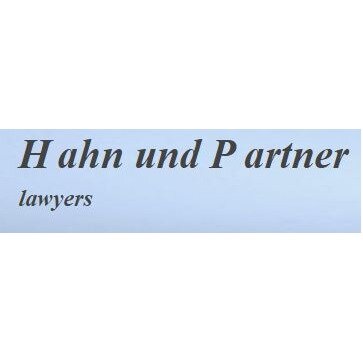Best Private Equity Lawyers in Germany
Share your needs with us, get contacted by law firms.
Free. Takes 2 min.
Or refine your search by selecting a city:
List of the best lawyers in Germany
About Private Equity Law in Germany
Private equity (PE) law in Germany covers the legal framework that governs transactions involving investments in private companies. These investments are typically made by private equity firms, funds, and investors who acquire stakes in companies with the aim of enhancing their value and eventually realizing a return on investment, often through a sale or initial public offering (IPO).
Germany has a vibrant private equity market, supported by a stable legal system, a strong economy, and a robust regulatory environment. Private equity transactions in the country can range from buyouts and venture capital investments to growth capital and restructuring deals. Legal expertise is crucial at every stage, from structuring the transaction and conducting due diligence to negotiating terms, managing regulatory approvals, and overseeing exit strategies.
Why You May Need a Lawyer
Legal assistance is essential in private equity transactions due to their complexity and the significant amounts of money involved. Here are some common situations where hiring a lawyer is highly recommended:
- Structuring and negotiating investment agreements to protect your interests
- Conducting due diligence to identify and address legal, financial, and operational risks
- Ensuring compliance with German and EU regulations, including antitrust and competition laws
- Drafting shareholder agreements, management agreements, and other key documents
- Advising on financing structures, including debt and equity components
- Managing cross-border transactions involving German companies or investors
- Planning and executing exit strategies such as trade sales or IPOs
- Resolving disputes between parties and handling post-closing issues
Local Laws Overview
Private equity investments in Germany are shaped by a variety of local laws and regulations. Some of the most important legal aspects include:
- Company Law: The German Stock Corporation Act (Aktiengesetz - AktG) and Limited Liability Companies Act (GmbH-Gesetz - GmbHG) set out the rules for corporate structure, governance, and shareholders’ rights.
- Financial Regulation: The German Investment Code (Kapitalanlagegesetzbuch - KAGB) regulates private equity funds and their managers.
- Antitrust and Merger Control: The German Act against Restraints of Competition (Gesetz gegen Wettbewerbsbeschränkungen - GWB) requires certain transactions to be notified to the Federal Cartel Office.
- Employment Law: Employee protection laws, including co-determination and works council rights, must be taken into account, particularly in larger transactions.
- Taxation: German tax law influences the structuring of deals, including capital gains taxation, withholding tax, and value-added tax (VAT) implications.
- Foreign Investment Control: Certain transactions involving non-EU investors may require approval under Germany’s foreign trade laws.
Seeking specialist legal advice is recommended to navigate these and other legal considerations effectively.
Frequently Asked Questions
What is private equity and how does it work in Germany?
Private equity involves investing in the shares of private companies to increase their value over time. In Germany, PE firms invest in businesses, often providing management expertise and financial resources to foster growth or turnaround strategies, with the goal of exiting the investment for a profit.
Are there restrictions on who can invest in private equity in Germany?
Generally, private equity investments are targeted at institutional investors, high-net-worth individuals, and professional investors due to regulatory requirements and the complexity of these investments.
What legal structures are commonly used for private equity investments in Germany?
Common legal structures include limited liability companies (GmbH), stock corporations (AG), and limited partnerships (KG or GmbH & Co. KG). The choice depends on the investment structure and tax considerations.
What is due diligence and why is it important in private equity transactions?
Due diligence is the process of thoroughly investigating a target company’s legal, financial, and operational status to identify risks and ensure informed decision-making before committing to an investment.
How does German law protect minority shareholders in private equity deals?
German law provides several protections for minority shareholders, such as information rights, inspection rights, and sometimes veto rights on key decisions. Shareholder agreements can also include additional protections.
What are the main regulatory authorities involved in private equity in Germany?
Key regulatory authorities include the Federal Financial Supervisory Authority (BaFin) for financial regulation, the Federal Cartel Office (Bundeskartellamt) for antitrust matters, and the Federal Ministry for Economic Affairs and Climate Action for foreign investment controls.
Do private equity transactions require regulatory approval in Germany?
Some transactions, especially those involving large companies or foreign investors, may require approvals under antitrust or foreign trade law. Legal advice can help determine when approvals are needed.
Are there specific employment law considerations in private equity transactions?
Yes, especially in transactions involving large workforces. Employee rights, information, consultation, and co-determination provisions must be followed, which can impact transaction timelines and terms.
How is private equity income taxed in Germany?
Tax treatment depends on the structure of the investment, investor status, and holding period. Common taxes include capital gains tax, corporate income tax, and sometimes trade tax. Tax planning is crucial for optimizing returns.
Can foreign investors participate in private equity deals in Germany?
Yes, Germany welcomes foreign investment in private equity, though certain sensitive sectors or investments above specific thresholds may require government approval. Compliance with German and EU regulations is essential.
Additional Resources
If you are seeking further information or assistance, the following resources may be helpful:
- Federal Financial Supervisory Authority (BaFin) - regulates financial markets and investment funds
- Federal Cartel Office (Bundeskartellamt) - oversees antitrust and merger control matters
- German Private Equity and Venture Capital Association (BVK) - provides industry insights and advocacy
- Federal Ministry for Economic Affairs and Climate Action - responsible for foreign investment reviews
- Local Chambers of Commerce - offer business advisory and networking services
- Court websites and legal information portals - supply up-to-date information on German commercial and company law
Next Steps
If you believe you need legal assistance with a private equity matter in Germany, consider these steps:
- Assess your objectives and gather relevant information about your intended transaction or investment
- Identify lawyers or law firms with expertise in private equity, mergers and acquisitions, and German corporate law
- Arrange an initial consultation to discuss your needs, potential risks, and legal options
- Evaluate the proposed approach, legal fees, and timeline before engaging a lawyer
- Work closely with your legal counsel throughout the transaction to ensure compliance and safeguard your interests
Taking timely, qualified legal advice will help you navigate Germany’s private equity landscape securely and efficiently.
Lawzana helps you find the best lawyers and law firms in Germany through a curated and pre-screened list of qualified legal professionals. Our platform offers rankings and detailed profiles of attorneys and law firms, allowing you to compare based on practice areas, including Private Equity, experience, and client feedback.
Each profile includes a description of the firm's areas of practice, client reviews, team members and partners, year of establishment, spoken languages, office locations, contact information, social media presence, and any published articles or resources. Most firms on our platform speak English and are experienced in both local and international legal matters.
Get a quote from top-rated law firms in Germany — quickly, securely, and without unnecessary hassle.
Disclaimer:
The information provided on this page is for general informational purposes only and does not constitute legal advice. While we strive to ensure the accuracy and relevance of the content, legal information may change over time, and interpretations of the law can vary. You should always consult with a qualified legal professional for advice specific to your situation.
We disclaim all liability for actions taken or not taken based on the content of this page. If you believe any information is incorrect or outdated, please contact us, and we will review and update it where appropriate.
Browse private equity law firms by city in Germany
Refine your search by selecting a city.















